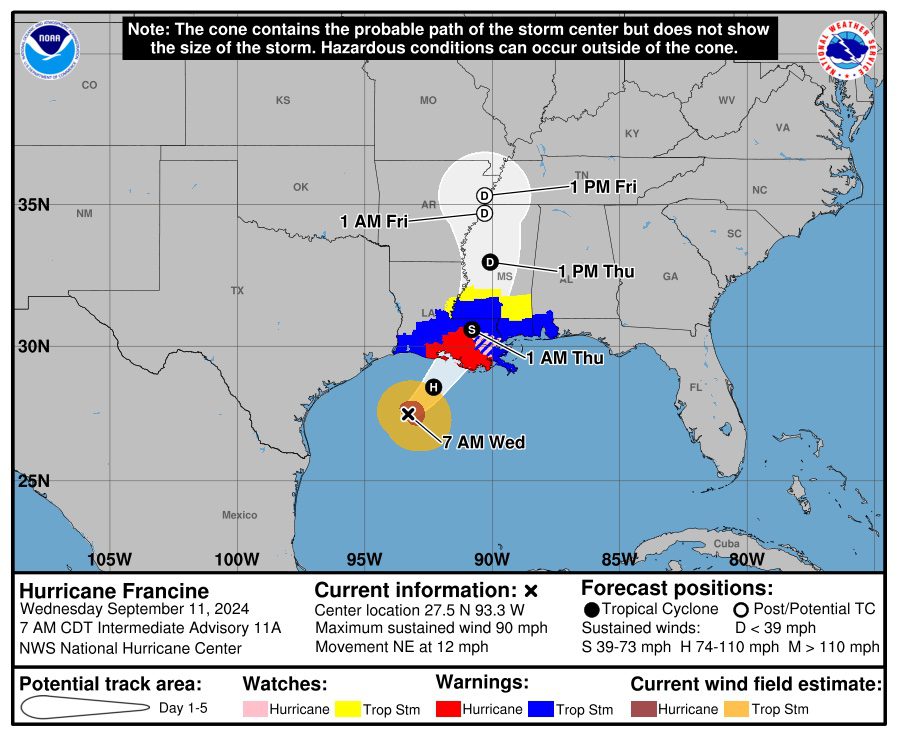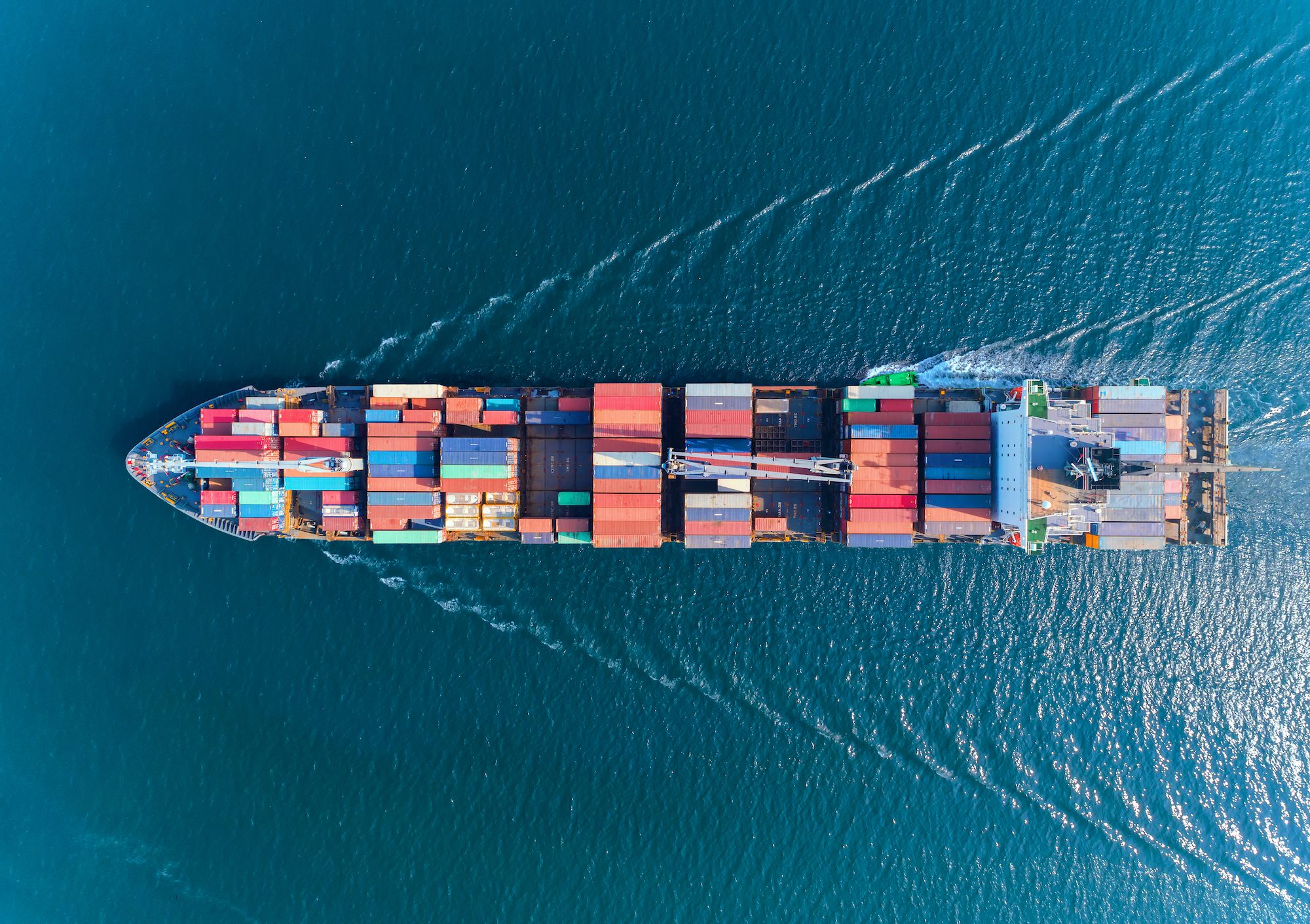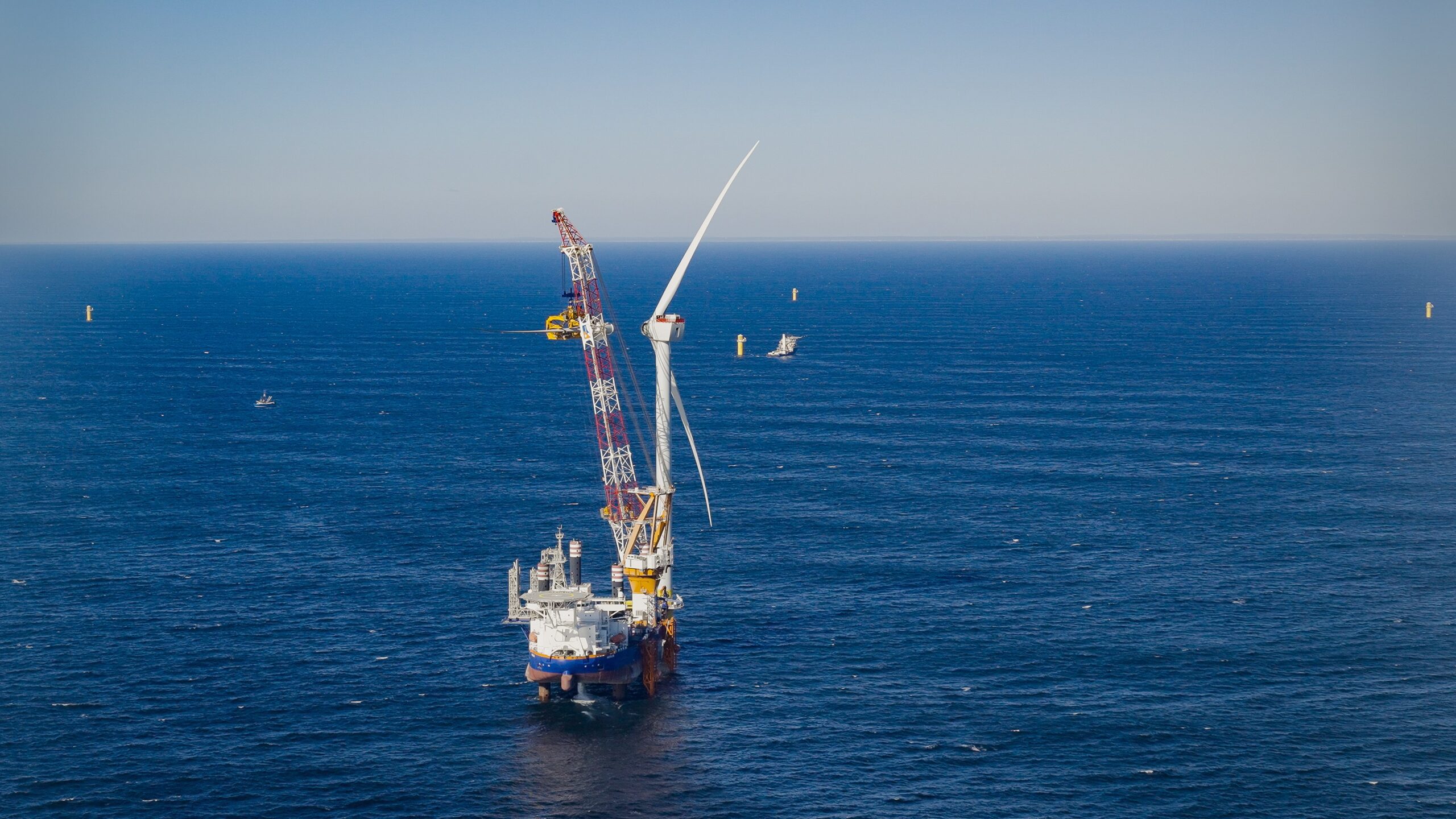By Marianna Parraga, Erwin Seba and Tom Polansek
HOUSTON/CHICAGO, Sept 11 (Reuters) – Energy production and agricultural exports out of the U.S. Gulf of Mexico were disrupted, and oil refineries in Louisiana slowed operations ahead of Hurricane Francine’s landfall later on Wednesday, according to official and operator reports.
Port Fourchon, Louisiana, home to marine and equipment suppliers to offshore oil producers, was closed to vessel traffic as was the Louisiana Offshore Oil Port (LOOP), the only U.S. deepwater port that can handle very large crude carriers (VLCCs) for oil imports and exports.
New Orleans, Plaquemines, Cameron, Lake Charles and Houmaports remained closed on Wednesday, the U.S. Coast Guard said, tying up fuel, soybean and grains headed for export. Francine’s rains could threaten the region’s cotton crop, agriculture officials said.
Six eastern Louisiana refineries, most around New Orleans, were operating with minimal staff to ride out the storm in the plants. Exxon Mobil’s Baton Rouge refinery cut output to as low as 20% of its 522,500 barrel-per-day (bpd) capacity in preparation for Francine’s landfall.
U.S. crude oil climbed as much as $2 a barrel on Wednesday, driven by fears of lengthy production shutdowns in the offshore oil patch as Francine barreled through.
As of Wednesday morning, personnel have been evacuated from 171 production platforms, representing 46% of the manned platforms in the Gulf, the Bureau of Safety and Environmental Enforcement (BSEE) said. Additionally, three non-dynamically positioned rigs and four dynamically positioned rigs have been evacuated or moved out of the storm’s path.
Approximately 38% of the current oil production and 48% of the current natural gas production in the Gulf of Mexico has been shut-in, according to the offshore regulator.
Francine was moving northeast on Wednesday with maximum sustained winds of 90 mph (150 kph), the U.S. National Hurricane Center said. A faster motion is expected later in the day. Its center is expected to move across Mississippi on Thursday.
The storm is expected to bring heavy rainfall and the risk of considerable flooding across southeastern Louisiana, Mississippi, far southern Alabama and northern Florida.
Louisiana Governor Jeff Landry and U.S. President Joe Biden declared state of emergencyfor Louisiana.
The hurricane could spare liquefied natural gas plants recently built or expanded near the U.S. Gulf of Mexico, which is home to about 15% of U.S. oil production and 2% of natural gas output. The storm track was further east than many of the coastal plants.
TEXAS RELIEVED
As the hurricane moved north along from Texas coast, some ports that had closed to vessel navigation earlier this week including Beaumont, Port Arthur, Sabine and Brownsville began post-storm assessments in preparation for reopening, the Coast Guard said.
Francine has disrupted crop shipments to the Mississippi Gulf region, responsible for about 55% of U.S. soy exports, said Mike Steenhoek, executive director of the Soy Transportation Coalition, an industry group.
“The barge companies are not directing their barge flotillas to go down into that area until the storm exits the region,” Steenhoek said.
Francine’s ultimate impact will depend on how severe the storm is, Steenhoek said. While hoping for minimal disruptions and damage, traders also are watching to see whether Francine brings needed precipitation to the Mississippi River at a time when low water levels have slowed grain transportation.
Farmers in the central Gulf Coast region and the Mississippi Delta were preparing for the storm’s arrival by harvesting crops, including rice and soybeans, where possible, the U.S. Department of Agriculture said in a weather report.
Much of the region’s cotton crop is vulnerable to damage from rain and winds as their bolls are opening, USDA said.
(Reporting by Marianna Parraga and Erwin Seba; Additional reporting by Sherin Elizabeth Varghese; Editing by Gary McWilliams and Marguerita Choy)
(c) Copyright Thomson Reuters 2024.

 Join The Club
Join The Club












